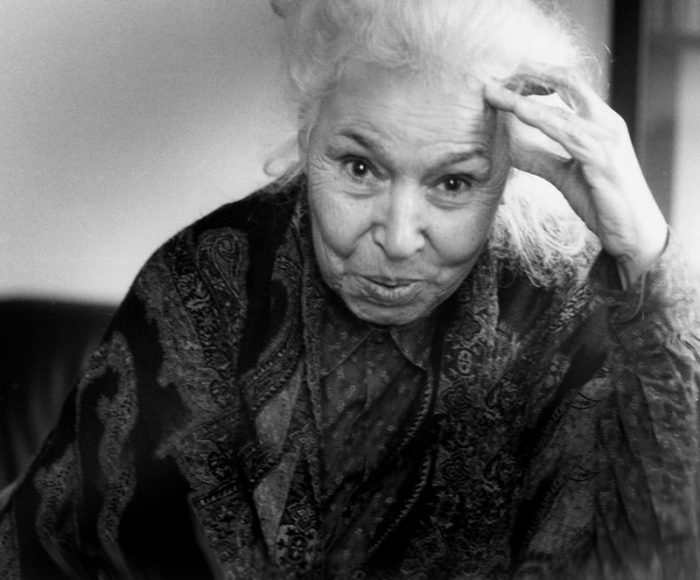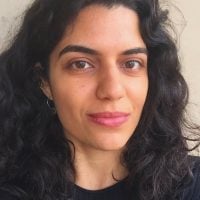“They said, ‘You are a savage and dangerous woman. I am speaking the truth. And the truth is savage and dangerous.'” ~ Nawal El Saadawi
~
The world lost a trailblazing icon on March 21, 2021.
Nawal El Saadawi, a feminist author, doctor, activist, and prolific thinker has died at the age of 89.
Many refer to her as the “Simone De Beauvoir” of the Arab World, but to view her in a Eurocentric light like that diminishes her power as one of the greatest feminist writers and activists of our time. As Mona Eltahawy, another brilliant Egyptian feminist author, said: “We are not local versions of people from elsewhere.” Nawal El Saadawi is the Nawal El Saadawi of the world.
Growing up and experiencing the horrific, barbaric practices of the female genital mutilation (FGM) herself at the age of six, and forced to marry at the early age of 10 (though she succeeded in resisting), she was determined to speak out against the sexual oppression of women. She campaigned against FGM for decades, and it finally was banned in Egypt in 2008.
Egypt has always been a focal point for Arab or Islamic feminism since the 1919 feminist movement led by Huda Shaarawi on the streets of Cairo. This has paved the way for feminists like Nawal El Saadawi and others to continue to challenge the patriarchy and demand for women’s voices to be heard.
I’ve grown up in Egypt, and I’ve heard stories of FGM from people around me who I personally know. It’s not a walk in the park—it leaves you traumatised. And the generational trauma is felt through these invisible ancestral lines. Taking away a woman’s right to feel pleasure robs a woman of her right to inhabit her own body and believe it’s hers.
This is more prevalent in my grandmother’s generation than it is in mine, but left unhealed, it can manifest as narcissism, believe it or not. When control is taken away from you, usually the need to control others grows, too. It can manifest as helplessness or it can manifest as internalised misogyny, believing the man is inherently more worthy. It can manifest itself in so many ways, because it’s a horrible practice that denies a woman her agency and her right to feel or be who she was born to be. This has massive repercussions on a social level too.
Nawal El Saadawi was a doctor too, and she developed a passion for health education, which the government opposed, and yet still, she remained outspoken even when it got her detained. She was a force to be reckoned with and fought against religious fanaticism, saying that oppression stemmed from patriarchy and poverty, more than it did with Islam as a religion by itself. Yet, supremely conservative muslims often claim she was a heretic. To me, she practiced Islam by unveiling the hypocrisy of the pseudo-Islamic world—and that comes with a price.
She wrote over 50 books, including the popular Woman at Point Zero (1975), and The Hidden Face of Eve (1977), which teach us how she survived a level of disempowerment that only a few woman have been able to articulate so well.
Thank you, Nawal El Saadawi, for being a beacon of resistance.
Thank you for being controversial.
Thank you for teaching us how to reevaluate cultural norms and to stand up against outdated patriarchal standards.
Thank you for healing your wounds and helping the world through your words.
Thank you for liberating yourself, and being a model for other women to find their liberation, too.







Read 17 comments and reply